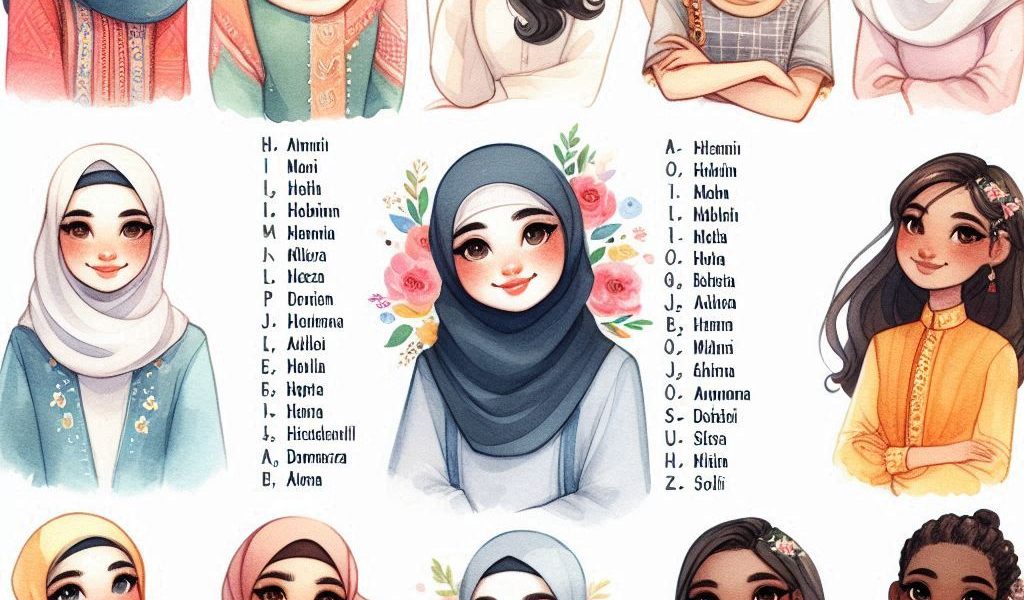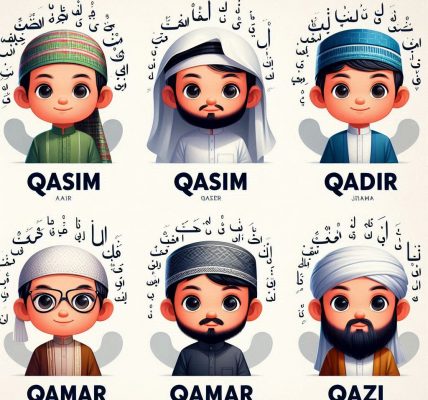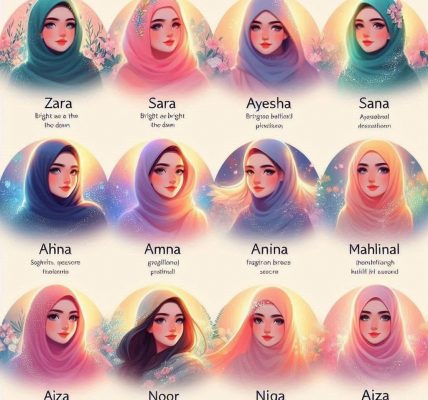Unlocking the Beauty of Muslim Girl Names with Meaning
Introduction: Discover the Richness of Muslim Girl Names
Welcome to our comprehensive guide on Muslim girl names with meaning. In this article. We delve into the beautiful and meaningful world of Muslim names for girls, exploring their origins, significance, and the cultural traditions that surround them. Whether you’re a parent-to-be seeking the perfect name for your daughter or simply curious about the diversity of Muslim names. We invite you to join us on this enlightening journey of discovery.
Read More: Modern Muslim Girl Names from A to Z
Understanding the Importance of Names in Muslim Culture
In Muslim culture, names hold profound significance and are often chosen with great care and deliberation. A person’s name is more than just a label; it is a reflection of their identity, values, and aspirations. Muslim girl names are typically chosen to honor religious figures, convey positive attributes or virtues, or express the parents’ hopes and dreams for their daughter’s future. By exploring the meanings behind these names. We gain insight into the rich tapestry of Islamic culture and tradition.
Read: Travel Blog Mircari Experience
Exploring Popular Muslim Girl Names and Their Meanings
Muslim girl names are as diverse and varied as the communities from which they originate. From traditional Arabic names to modern variations influenced by global trends. There is a wealth of options to choose from. Some popular Muslim girl name and their meanings include:

- Aisha: Derived from Arabic, meaning “alive” or “living.”
- Fatima: Of Arabic origin, meaning “one who abstains” or “captivating.”
- Zara: is an Arabic and Hebrew name that means “princess” or “flower
- “Aaliyah”: Arabic word meaning “exalted” or “high
- Leila: The name derives from the Arabic word leila, which means “night” or “dark beauty
Choosing the Perfect Muslim Girl Name for Your Daughter
When choosing a Muslim girl name for your daughter. It’s important to consider not only its meaning but also its cultural and religious significance. Many parents consult religious texts, family elders, or Islamic scholars for guidance in selecting a name that embodies positive qualities and values. Whether you opt for a traditional name steeped in history or a more contemporary choice, the most important thing is that it resonates with you and holds special meaning for your family.
FAQ
- How do I choose a meaningful Muslim girl name for my daughter? When choosing a Muslim girl name, consider its meaning, cultural significance, and religious connotations. Consult with family members, religious scholars, or online resources for inspiration and guidance.
- Are there specific guidelines for naming Muslim girls? While there are no strict rules for naming Muslim girls, it is recommended to choose names with positive meanings that reflect Islamic values and virtues. Avoid names that have negative or inappropriate connotations.
- Can I combine Arabic and non-Arabic names for my daughter? Yes, many Muslim parents choose to combine Arabic and non-Arabic names to create unique and meaningful combinations. Just ensure that the names chosen are culturally appropriate and hold positive meanings.
- What are some popular Muslim girl names in different regions? Popular Muslim girl names vary by region and cultural tradition. In addition to Arabic names, you may also find names influenced by Persian, Turkish, or South Asian cultures, each with its own unique meanings and significance.
- Is it common to use family names or honorifics in Muslim girl names? Yes, it is common for Muslim families to use family names or honorifics to honor relatives, religious figures, or cultural heroes. These names often carry special meaning and significance within the family lineage.





1 COMMENTS
Comments are closed.